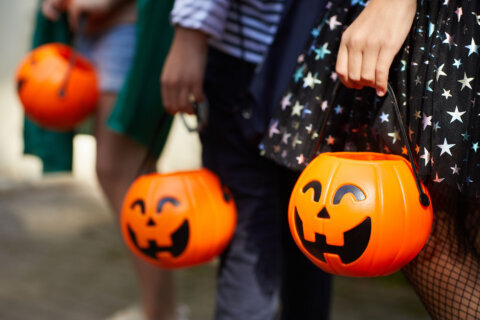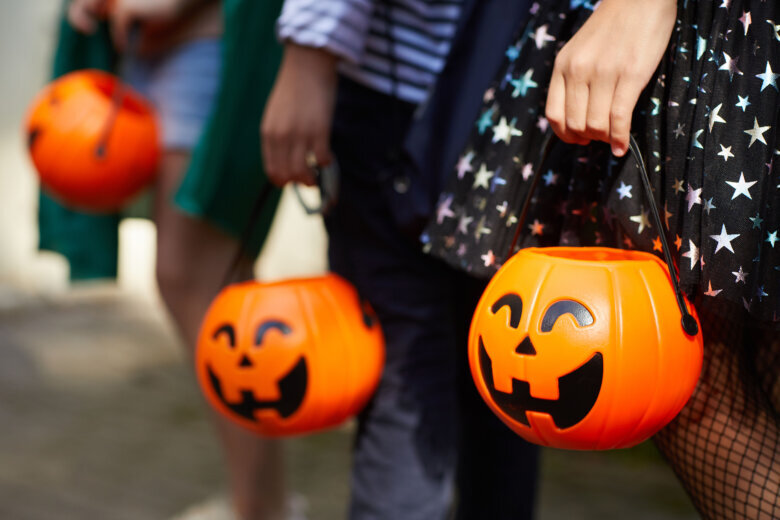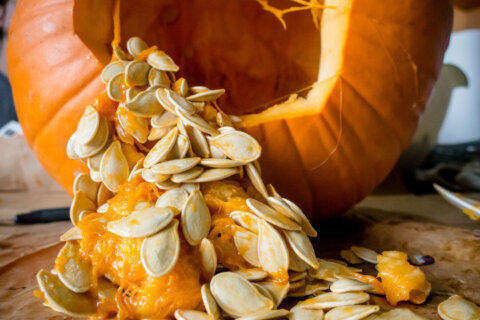
▶ Watch Video: Experts share trick-or-treat safety tips for parents this Halloween
What’s scarier than ghosts and ghouls on Halloween? Getting hurt while trying to enjoy the holiday.
As families prepare for kids to head out trick-or-treating, we gathered some expert advice on how to stay safe.
“Kids love the magic of Halloween, but costume and traffic safety are essential for trick-or-treaters,” Jennifer Schallmoser, media relations specialist at the National Safety Council, told CBS News in an email.
Here are 5 tips to ensure your night is a treat:
1. Pair up or make a plan
An adult should accompany young children while trick-or-treating, and if an older child is going on their own or with friends, it’s important to make a plan. Here’s what Schallmoser suggests:
- Review a route with familiar, well-lit areas.
- Choose a specific time they should return home.
- Remind them to never enter a stranger’s home or car.
2. Choose costumes free of safety hazards
A safe Halloween calls for safe costumes.
The U.S. Food and Drug Administration recommends only buying costumes labeled fire-resistant or made with fire-resistant fabrics such as polyester or nylon. And to avoid tripping, make sure costumes aren’t too long.
To maintain good vision and avoid the risk of eye injury, skip decorative colored contacts, and opt for makeup or hats instead of masks. Be sure to patch-test any makeup ahead of time to avoid skin irritation, the FDA advises. You can also check the FDA’s list of color additives to make sure the colors in your products are permitted in cosmetics.
For further prevent skin and eye irritation, remove all makeup before heading to bed, Schallmoser adds.
3. Add some visibility
Not only should your costume not harm you, it should also be equipped to warn drivers not to hurt you as well. This can be done by adding reflective tape to costumes and bags, Schallmoser says. You can also use glow sticks to add some extra illumination on dark nights.
“Children are more than twice as likely to be hit by a car and killed on Halloween than on any other day of the year,” Schallmoser says. “Lack of visibility because of low lighting at night also plays a factor in these incidents.”
4. Candy consumption caution
Tell children not to eat any candy until they return home, Schallmoser says. That can help them steer clear of food allergies or other risks.
To reduce temptation, the FDA suggests eating a snack before heading out. It also advises inspecting all collected treats at home and throwing anything away with “signs of tampering, such as an unusual appearance or discoloration, tiny pinholes, or tears in wrappers.”
5. Be careful behind the wheel
Parents and other adults can also help make the holiday safe for everyone by being extra cautious on the road.
In addition to watching out for children in the street, Schallmoser says to be careful when entering and exiting driveways and alleys, and she discourages new, inexperienced drivers from driving on Halloween.








